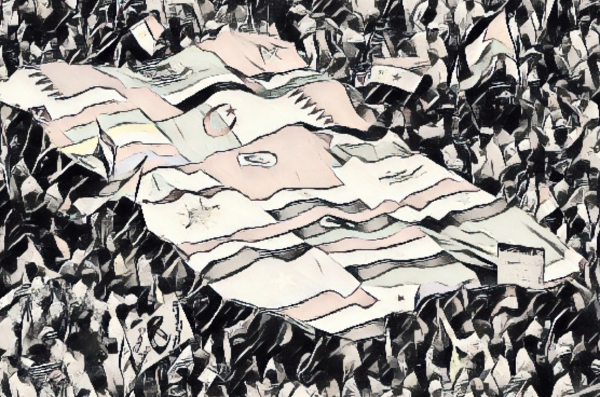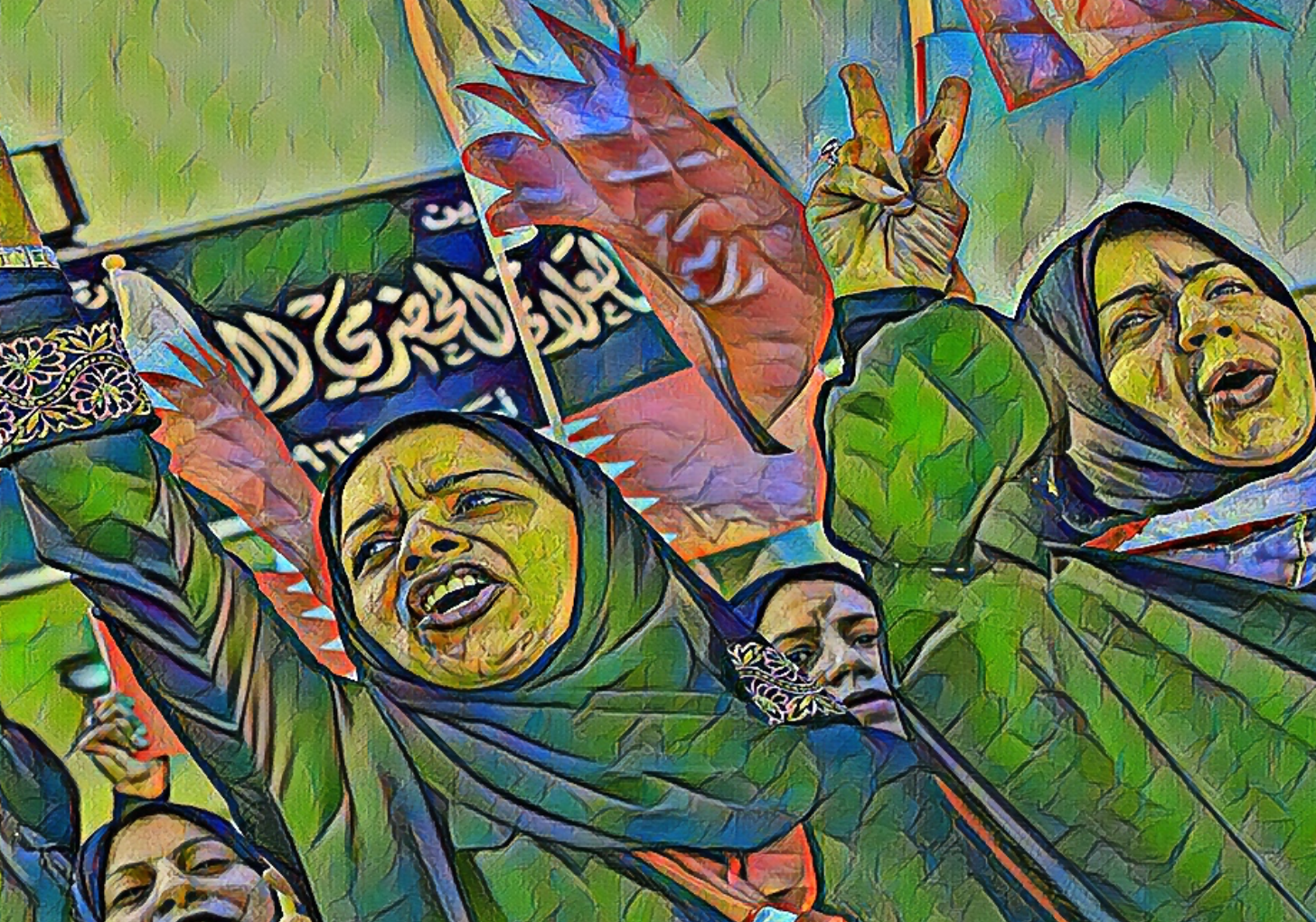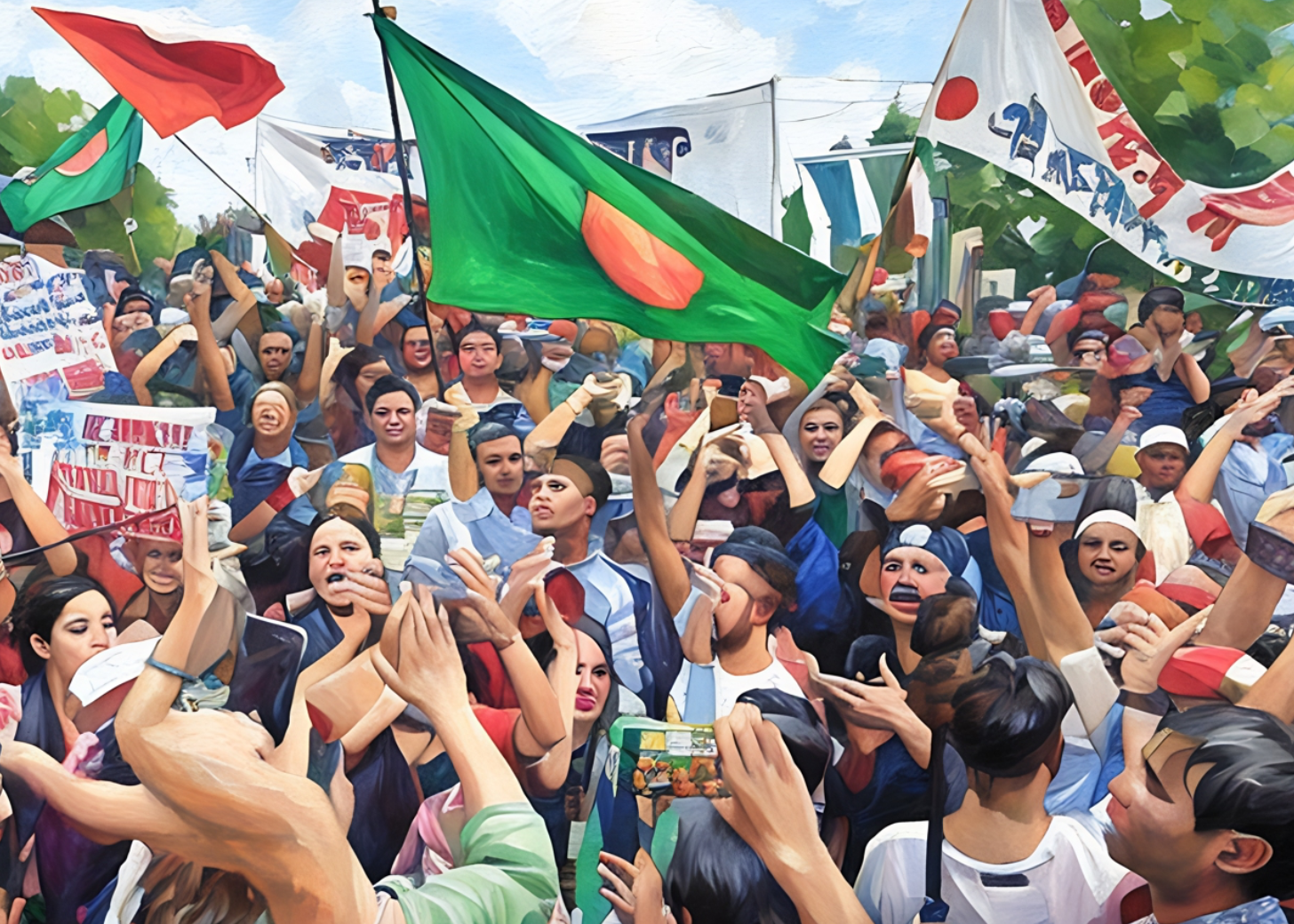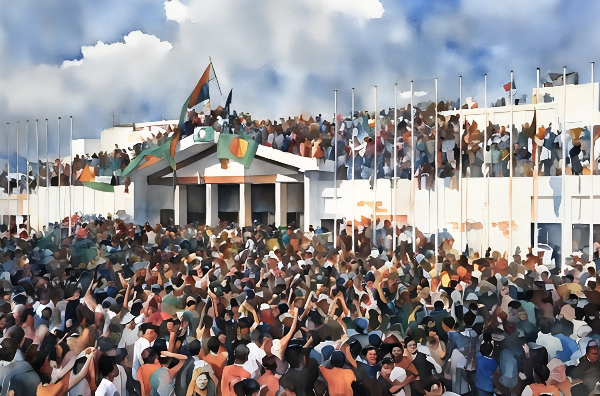Beyond the Arab Spring: Lessons for Bangladesh's “Monsoon Spring” and the path ahead

In 2011, the desperate act of a Tunisian street vendor set the Arab world ablaze.
Mohamed Bouazizi's self-immolation became the catalyst for the Arab Spring, a wave of protests that swept across the region, fueled by simmering discontent with stagnant economies, repressive regimes, and a yearning for political change.
From the bustling streets of Tunis to Cairo's iconic Tahrir Square, millions took to the streets demanding greater freedoms and accountability.
The movement toppled dictators in Tunisia, Egypt, and Yemen, but its legacy remains complex and contested. Libya, Syria, and Yemen descended into brutal civil wars, leaving deep scars and ongoing instability.
While some regimes crumbled under the pressure, others adapted and survived.
From Saudi Arabia to Jordan, ruling elites employed a mix of strategies to maintain their grip on power. Some doubled down on repression, silencing dissent through arrests and crackdowns.
Others sought to divide and conquer, exploiting sectarian tensions or offering financial incentives to key constituencies.
More than a decade later, the Arab Spring's aftershocks continue to reverberate. The hopes for sweeping democratic reforms have largely been dashed, replaced by a sobering reality of entrenched authoritarianism and lingering conflict.

Legacy of the Arab Spring
Yet, the movement's legacy endures. It shattered the illusion of invincibility surrounding Arab autocrats, reminding the world of the power of ordinary people demanding change.
In Libya, NATO's intervention toppled Gaddafi, but left a power vacuum that warring militias quickly filled. Syria's Assad clings to power, his authority severely weakened. Once prosperous, Libya and Syria are now deeply troubled, even failed states.
Yemen's Saleh exploited existing divisions and weak institutions after returning from medical leave in Saudi Arabia. This ignited a civil war and fueled fundamentalism, issues that could impact countries beyond Yemen, including Bangladesh.
Tunisia and Egypt saw the Arab Spring's most notable successes. The removal of Ben Ali and Mubarak was largely aided by splits within their own ruling elites.
In both Tunisia and Egypt, the top military leaders chose to stand with the people, refusing orders to suppress protests. This ensured that the military remained a unified and influential force during the political transitions that followed.
Had the armed forces in Bangladesh acted differently, the consequences could have been devastating, with widespread violence and destruction, as witnessed in places like Bahrain and Syria.
While the Egyptian revolution toppled Mubarak, it failed to dismantle the deep-rooted power structures of his regime. The state apparatus, powerful intelligence agencies, and corrupt business networks he built remained largely intact.
Mubarak's thirty-year rule left Egypt's institutions, including democratic ones, weakened and politically compromised.
Rushing into elections without addressing these fundamental issues proved detrimental to establishing lasting democracy. After Mubarak resigned in 2011, elections were held the following year, bringing Morsi and his Freedom and Justice Party to power.
However, they struggled to achieve meaningful change within the existing system. This led to a military coup in 2013, orchestrated by General El-Sisi, who remains in power today. The optimism of the Tahrir Square protests quickly gave way to disillusionment.
Tunisia, initially hailed as a success story, has also seen democratic backsliding under President Kais Saied.
Saied's actions in Tunisia, such as suspending the constitution and seizing control of key institutions, paint a bleak picture of democratic backsliding, returning the country to authoritarian rule.

Understanding the “neopatrimonialism”
Considering the focus on North Africa, it's crucial to examine the role of neopatrimonialism, a deeply entrenched practice across the continent.
This involves a unique approach to governance and legitimacy, often relying on clientelism, a system where power is centralized and favors are exchanged for loyalty.
Although neopatrimonialism can lead to coercion and resemble corruption, ruling elites often don't view it as such. State institutions are deliberately kept weak and manipulated to serve the interests of those in power.
In neopatrimonial systems, leaders maintain power through force or by rewarding supporters with positions and resources, often at the expense of the public. Breaking free from this cycle usually involves violent upheaval.
Such regimes typically last a few decades before being replaced, often by inexperienced administrations that struggle to provide stability or improve living conditions.
These new governments may focus on settling scores rather than addressing critical issues, quickly losing public support.
This loss of popularity often paves the way for another change in leadership, sometimes through democratic elections, but the cycle of instability and potential for a return to neopatrimonialism remains a persistent threat.
Without strong democratic institutions and safeguards, a new government in Bangladesh could easily slip into the same patterns of repression and mismanagement. To avoid this, reforms, strengthened institutions, and effective checks on power are essential.

Juxtaposing Bangladesh’s “Monsoon
Spring”
In the context of Bangladesh's recent "Monsoon Spring" and the ousting of Sheikh Hasina, it's important to remember that regime change alone doesn't guarantee a better future.
In neopatrimonial systems, revolutions often lead to new leaders who simply replicate the old ways.
The Bangladeshi military's reluctance to intervene further complicates the situation. Without the option of a coup, meaningful change likely hinges on the success of the revolution and the ability of the new leadership to break free from the cycle of neopatrimonialism.
Failure to do so could lead to yet another iteration of the same flawed system, with little hope for true democracy or lasting improvements in governance.
In our political history, the downfall of the autocratic Ershad regime in 1991, triggered by a mass uprising, initially ignited hopes for a democratic and well-governed Bangladesh.
However, the absence of strong institutions led to the 2007 political crisis, where a military-backed caretaker government took control.
Although the Awami League came to power democratically in 2009, it gradually adopted a system of patronage and favoritism, ultimately leading to an autocratic regime marked by excessive government control and poor governance.
While the 2024 revolution may usher in a new government through democratic means, it's crucial to remember that true change requires more than just a transfer of power.
Without substantial reforms and robust checks and balances, the deeply ingrained patterns of neopatrimonialism may persist, hindering the establishment of a truly democratic and accountable system.

What can we do?
To avoid slipping back into authoritarianism, I propose adopting a model inspired by Singapore, but adapted to our unique context. Our goal should be to create a society based on communal harmony and meritocracy.
Lee Kuan Yew, Singapore's founding father, emphasized the importance of selecting the right people for the right jobs. We must prioritize justice, the cornerstone of any cohesive society.
While nepotism and favoritism might seem beneficial in the short term, they ultimately erode the fabric of society. We need to foster a culture where speaking truth to power is valued, especially within our civil and military institutions.
We must also eliminate the VIP culture and wasteful spending of public funds on luxurious overseas medical treatments. Institutional reforms should be geared towards preventing interference and manipulation, thus forming the bedrock of good governance.
It's important to acknowledge that the downfall of a tyrannical regime often brings about various conflicts. We need to exercise patience in addressing these challenges and fostering reconciliation.
Lastly, I advocate for the establishment of an apolitical, professional, and credible deterrent force capable of responding effectively to any external threats, ensuring we can pursue our national interests without interference.
—-
Lt Gen (Retd) Mohammad Mahfuzur Rahman, PhD is a former Lieutenant General of the armed forces

